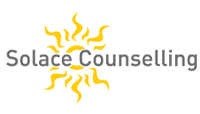
The cost for counselling is $220 per hour. Payment is accepted via cash, e-transfer, VISA and MasterCard.
*Fees for services are reimbursable through most extended health benefit plans. Contact your insurance company and/or your employee assistance program (EAP).
Virtual / Zoom sessions are also available.
Clinical Approaches:
-
Client Centered and Empowerment Based Therapy
-
Directed, Non-Directed and Experientially Based Play Therapy Approaches with Children and Adolescents
-
Cognitive Behavioural Therapy
-
Narrative Therapy
-
Solution Focused Therapy
-
Family Systems Therapy
-
Trauma Therapy - EMDR (Eye Movement Desensitization & Reprocessing)

Youth Counselling
Adolescents
Adolescence is a time when teens experience a leap in brain development which can have quite an impact on their behaviours and attitudes. This generation also brings different challenges than previous ones. Various electronic devices and social media available for communication and recreation brings advantages but also disadvantages and the potential to inhibit teenagers’ normal social & brain development. Adolescents’ sleep systems are also impacted.
The teenage years are often a time of stress, high sensitivity, and involvement in the “self” which requires our support and understanding to help navigate. Adolescents have to adjust to new experiences, challenges, decisions and often engage in competitive behaviour and peer confrontations. These come with a variety of mixed feelings that are all part of their developmental tasks.
This stage of life is also challenging for the parents as they learn how to deal with some of the complexities that are involved in raising a teenager! Support for both of you is available. It makes sense therefore that Nicole’s work also can involve times when parents and teenagers come together in therapy to improve communication and most importantly understanding. This is only successful however, when both parties agree to be involved.
Most adolescents are comfortable with talking as the means of communicating in therapy. However, if an adolescent is more withdrawn and has difficulty sharing through conversation, there are other creative approaches and interventions that may be a more suitable fit.
Nicole’s practices include various art therapy and age appropriate therapeutic games that help adolescents express and explore complex or smaller concerns and face obstacles.
Children
Counselling with children is very different than counselling with adults. It is important to know how and why.
Children communicate through play. As talking is for adults, play is children’s medium. Children express themselves more fully and more directly through self initiated, spontaneous play than they do verbally because they are most comfortable with play. Children’s feelings are often inaccessible at a verbal level. Developmentally, they lack the cognitive and verbal ability to express what they feel. Until a child is approximately 11 years of age they are not developmentally able to engage fully in abstract reasoning or thinking. The child’s world is a world of concretes! Play is the concrete expression of the child and is their way of coping with their world, so it is best to approach them at this level to engage effectively. It is significant to note that if a child is restricted to verbal expression it can automatically cause an obstacle to the therapeutic relationship by imposing limitations that have them needing to come up to the adult level of communication.
For children, playing out their experiences and feelings is the most natural and self healing process. Play also allows the child to organize their experiences and may be one of the few times in a child’s life when they feel more in control and thus more secure. Play provides a means through which conflicts can be resolved and feelings can be expressed. Feelings and attitudes that can be too threatening for the child to express directly can be safely projected through self chosen (non-directed play therapy) or therapeutically selected (directed play therapy) games or activities. This allows children some safety and distance to work through the issue.
Nicole follows a child centred approach and believes the most important part of therapy is the attitude in which the relationship begins and is maintained. This is warmth, genuineness, empathy, respect, and unconditional acceptance. With this she hopes to form the basis for the therapeutic relationship and facilitate the release of the child’s inner resources for growth.
Privacy and Confidentiality:
All information which is shared with the counsellor is private and will be treated as confidential with the following exceptions: if you sign a Consent for the Release of Information giving the counsellor permission to communicate with someone else; if, in the Counsellor’s professional opinion, there is a potential risk to yourself or to others; or if there is a legal obligation to report (if there is a child or adolescent at risk or the counsellor is subpoenaed by a court of law).
Nicole is governed in her work by the Code of Ethics and Standards of Practice of the Alberta College of Social Workers (www.acsw.ab.ca).

